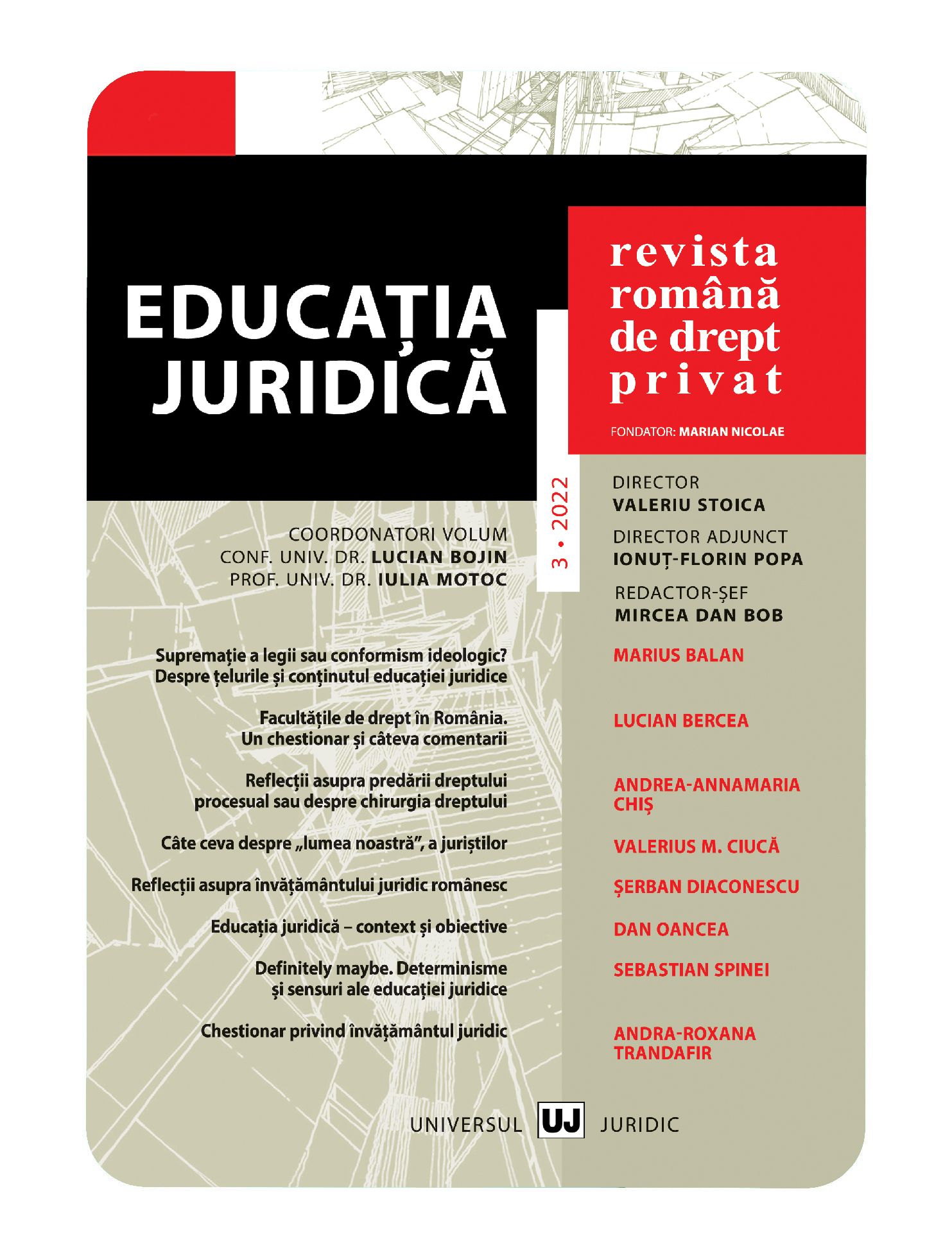Implicaţiile principiului adevărului în cadrul procedurilor judiciare: realităţi şi perspective
Implications of the truth principle in judicial proceedings: realities and perspectives
Author(s): Ioan LeşSubject(s): Law, Constitution, Jurisprudence, Criminal Law, Civil Law
Published by: Universul Juridic
Keywords: truth; conclusiveness of evidence; expertise; judge; justice; evidence; presumptions; active role; plausibility;
Summary/Abstract: In this study, the author analyses the possibilities of establishing the truth in judicial proceedings, particularly in civil proceedings. The principle of truth is analysed in relation to the active role of the judge, which, although not expressly enshrined in law, is an undeniable fundamental principle. It is particularly important to note that the establishment of the truth is not only linked to the active role of the judge, but also to other important principles of judicial procedure, as well as to some essential institutions, such as those relating to the appeal process and enforcement. Some particularities are also highlighted with regard to certain means of evidence, such as expert and testimonial evidence. In essence, the author considers that the truth promoted by the judge is not an absolute truth, but a judicial one, which should tend towards an objective truth. However, it should be noted that in the case of a judgement based on legal presumptions, the truth is no longer a judicial truth, but a legal truth, and in the case of a settlement we are in the presence of a conventional truth. Finally, the author considers that the promotion of the principle of truth also implies measures to strengthen the judge's independence and impartiality.
Journal: Revista Română de Drept Privat
- Issue Year: 2022
- Issue No: 03
- Page Range: 251-267
- Page Count: 17
- Language: Romanian
- Content File-PDF

